1. Even though many years have passed since receiving the certificate of merit from the Fatherland, my grandmother still keeps the habit of going out every afternoon, her eyes looking far away at the end of the road as if waiting for a familiar figure.
The Certificate of Merit from the Fatherland was placed solemnly on the altar, covered with a red cloth, but in her heart, that was not the end because she did not know where my uncle sacrificed himself, in which land he remained. Therefore, in the quiet nights, she still silently prayed for a miracle, that maybe my uncle was somewhere, and would one day return. That belief, though fragile as a wisp of smoke, had the strength to endure through the long years and months of her life. Time passed like that, 1 year, 2 years, then decades, my grandmother gave up the hope of welcoming her son back in his intact form, but instead had a burning desire to once touch the soil where her son lay.
My childhood was spent peacefully in my grandmother's small house. I still remember the late afternoons when my grandmother and I sat in the corner of the banyan tree at the village entrance to enjoy the breeze. Grandma always looked towards the small path through the fields. Occasionally, she quickly wiped away her tears. I also remember the afternoons when we lit the fire to cook rice together, or the late nights when she told me about my father's mischievous childhood antics, her voice mixed with a bit of reproach and love, and the stories she told were endless memories of my uncle, whom I had never seen but who instilled in me a sense of pride and infinite gratitude.
2. Through the stories told by my grandmother and father, I gradually imagined my uncle - a young man in his late teens or early twenties, fair-skinned, one of the most handsome men in the village, with a warm smile and very studious. Growing up during the years when the country was engulfed in war, my uncle volunteered to join the army in the Southern battlefield, bringing with him his youth and a promise to a girl from the next door neighborhood.
The day my uncle left, my grandmother picked some ripe grapefruits from the garden and placed them on the altar to tell him: “Our boy has grown up and knows how to dedicate himself to the Fatherland. I will overcome all difficulties so that he can confidently set out on his noble mission.” Before parting, she held my uncle’s hand tightly and told him to fight bravely, to be worthy of the tradition of his family and homeland, and to definitely return to his mother. Obeying his mother, my uncle set out with the belief in the day of victory so that he could soon return to his family’s embrace. The girl from the next village only had time to quickly hand my uncle a green scarf and then run to the grapefruit tree and sob. My grandmother comforted him and said: “Believe in him, and our family will have great joy.”
But then, the fateful day came. The news of his death from the southern battlefield left the whole family speechless. My grandmother did not cry, she just quietly went to the garden, picked a few grapefruits, placed them on the altar, where there was his portrait, and softly said: "Grandpa... the boy left me to come back to you. Please take care of him and teach him for me...".
Every spring, when the grapefruit garden behind the house is filled with fragrance, she goes out to the garden, as quiet as a shadow. Many days, she sits for hours, occasionally mumbling to the clusters of flowers as if she were confiding in a soul mate. For her, there is not only one day, July 27th, to calm down and miss, but at any time, anywhere, doing anything, whether happy or sad, she stands in front of the altar and talks to my grandfather and uncle as if they had never been apart. Every time she watches TV and sees someone find the grave of a relative after many years of losing contact, her eyes light up with hope. And so, season after season, year after year, she still silently waits, persistently like the underground stream that nourishes the grapefruit trees behind the garden so that each year they bloom and bear fruit.
3. Whenever I have the opportunity to visit martyrs' cemeteries, I always stop for a long time in front of the unnamed graves just to listen to the whispers of the earth and the wind. Occasionally, in the quiet space, I come across the images of grandmothers, mothers, and wives of martyrs quietly sitting by the graves, whispering to the deceased like the way my grandmother used to talk to my grandfather and uncle back then. I also meet many veterans, those who were lucky enough to return from the fierce battlefield, now with gray hair, still calling each other by the intimate names of Mr. Mia, Ms. Chanh... They quietly light incense sticks on the graves, sending with them their love, their memories, things they have not had time to say, and their unfinished dreams.
Standing before the tombstones of soldiers who forever stopped at the age of twenty, I felt more clearly than ever the loss and the never-healing wounds of mothers who lost their children, wives who lost their husbands. I understood why my grandmother could sit for hours chatting with the grapefruit tree, why she often woke up in the middle of the night... I clearly remembered her face with deep wrinkles like the marks of time, remembered her silver hair neatly wrapped in a dark brown silk scarf, remembered her sad eyes and skinny hands and the faded shirt that had followed her through many death anniversaries. I remembered the stories she told about her uncle who was forever in his twenties, "more beautiful than roses, harder than steel" (the words of poet Nam Ha in the poem Country) whom I had never met.
There are sacrifices that cannot be described in words, pains that cannot be named. Those are the sacrifices of heroic martyrs, the silent but persistent endurance of mothers, fathers, wives... in the rear. All have created a silent but immortal epic, writing the story of peace ... so that we can "see our homeland shining brightly in the dawn".
Japanese
Source: https://baoquangtri.vn/nguoi-o-lai-196378.htm


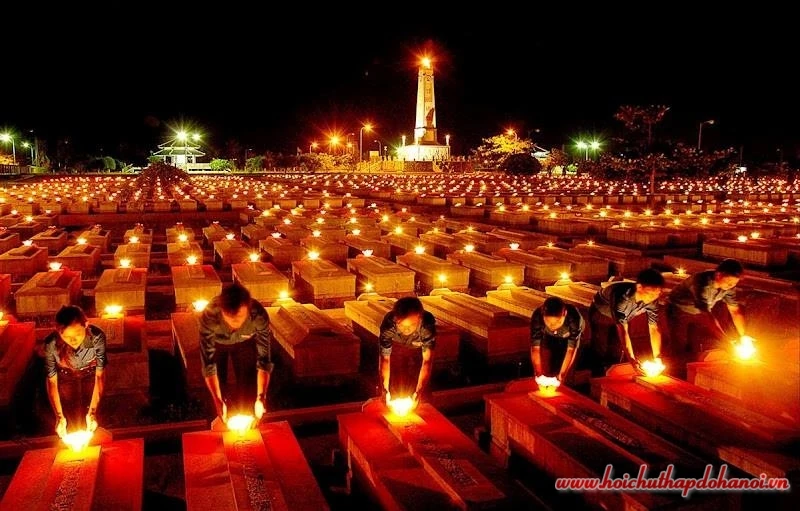
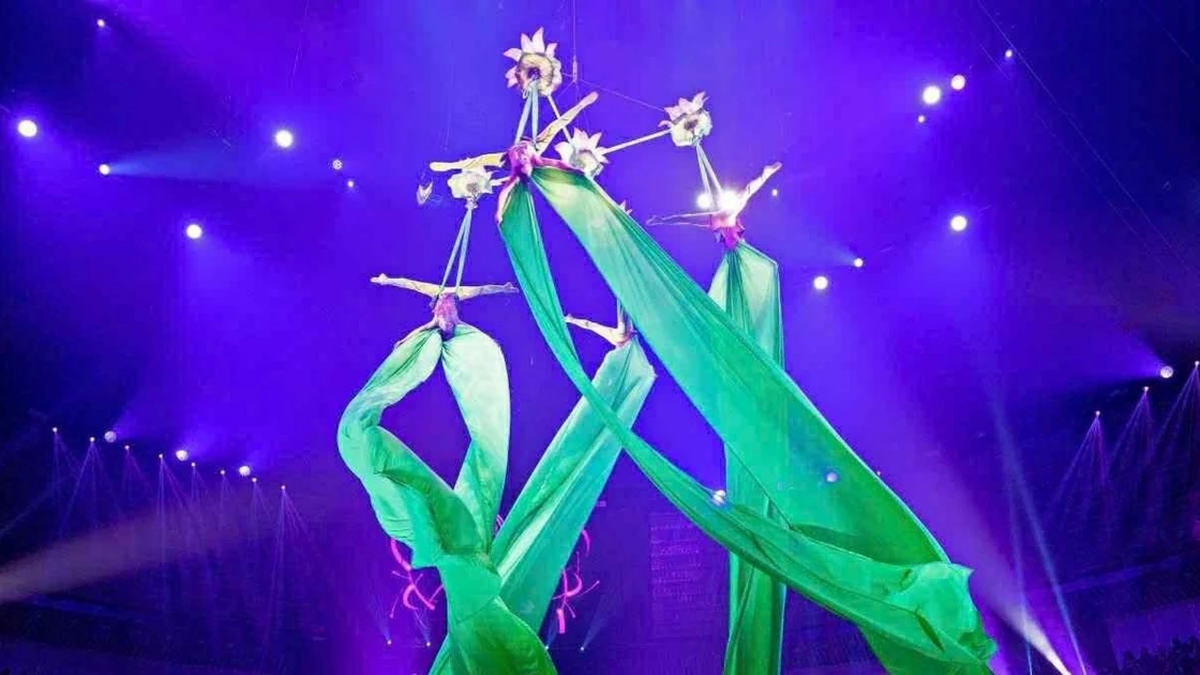




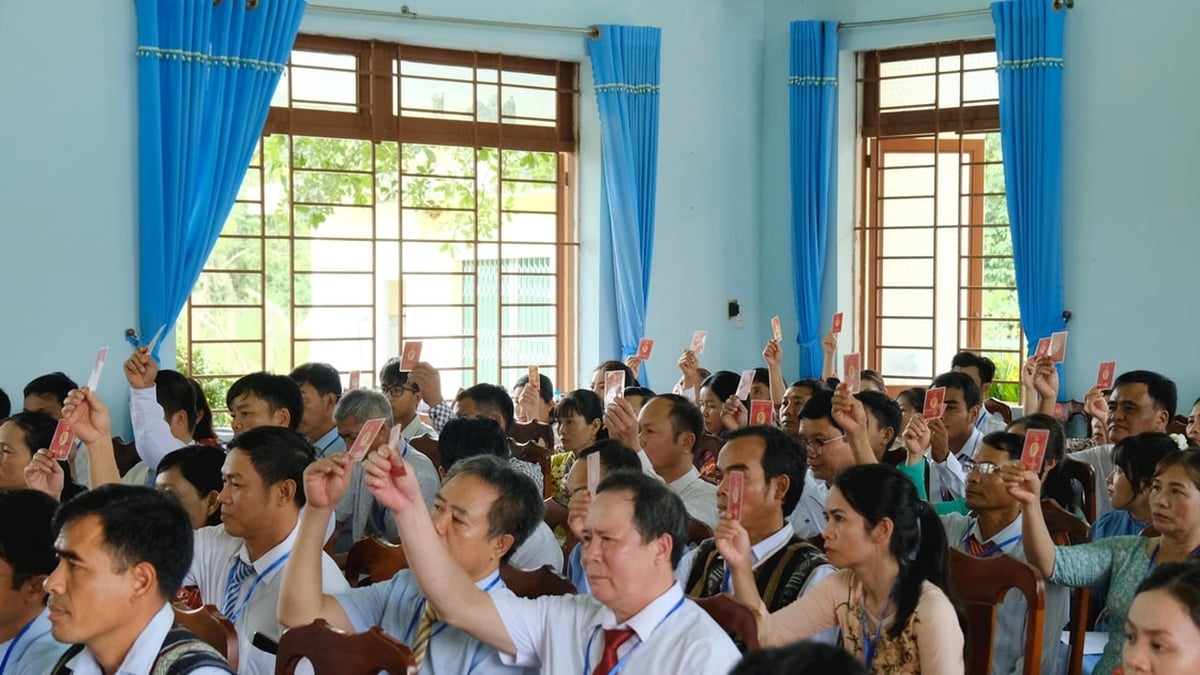
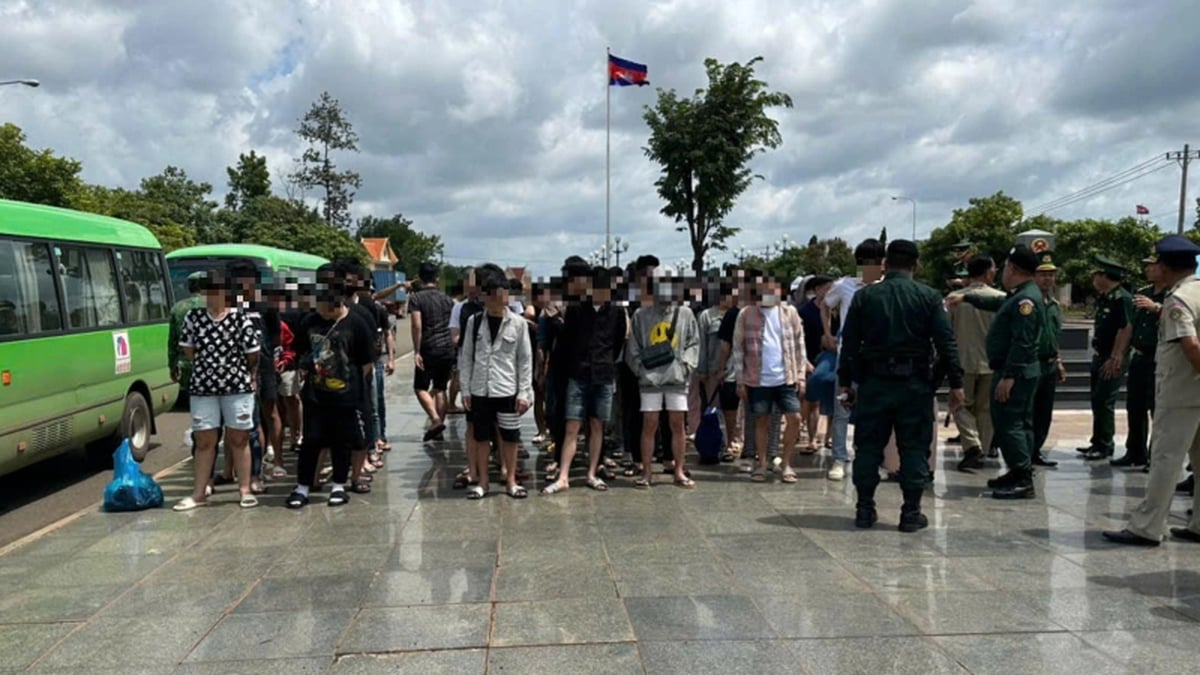
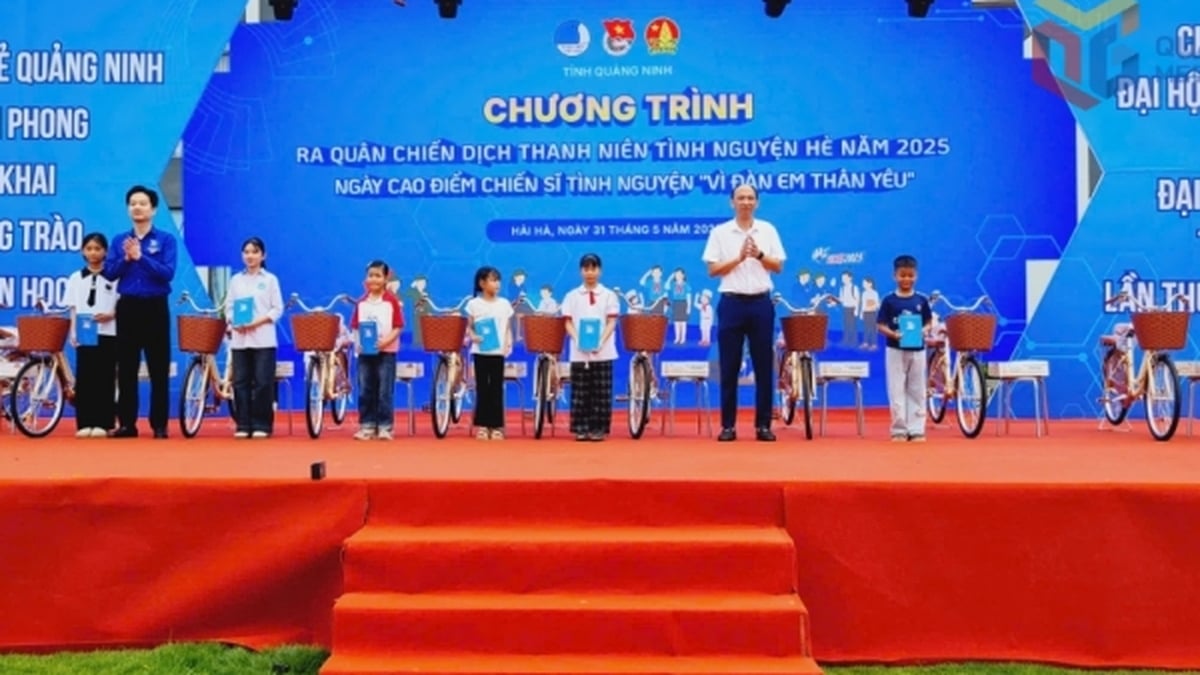


































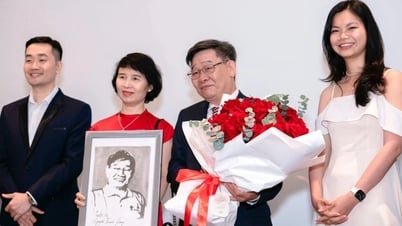

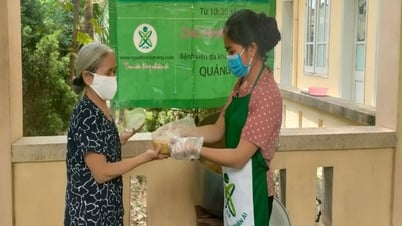

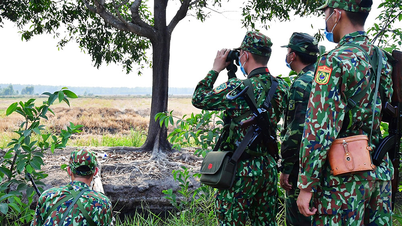











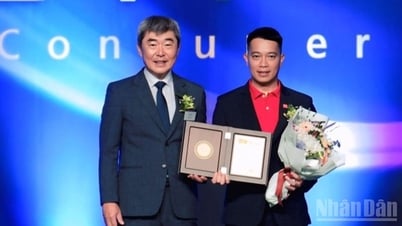






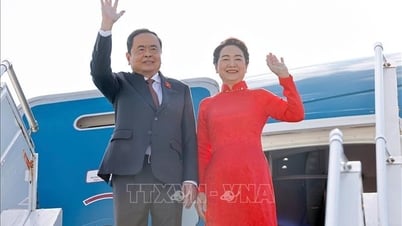





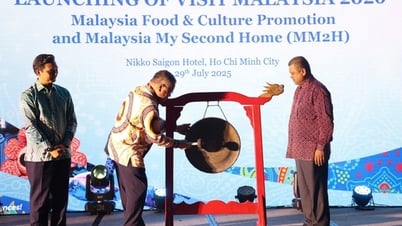






















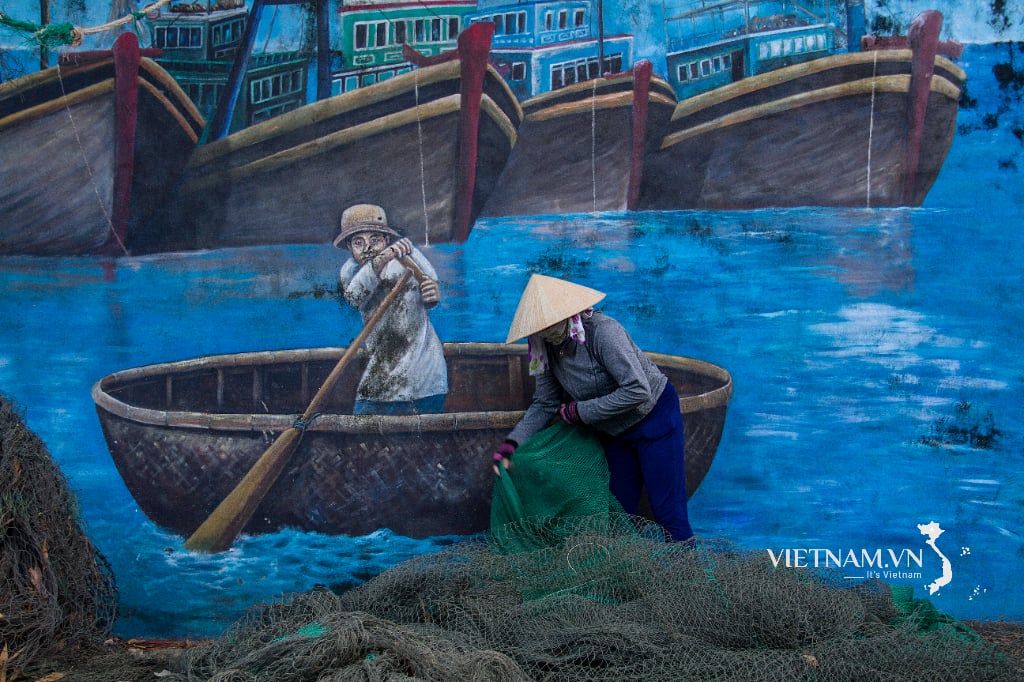

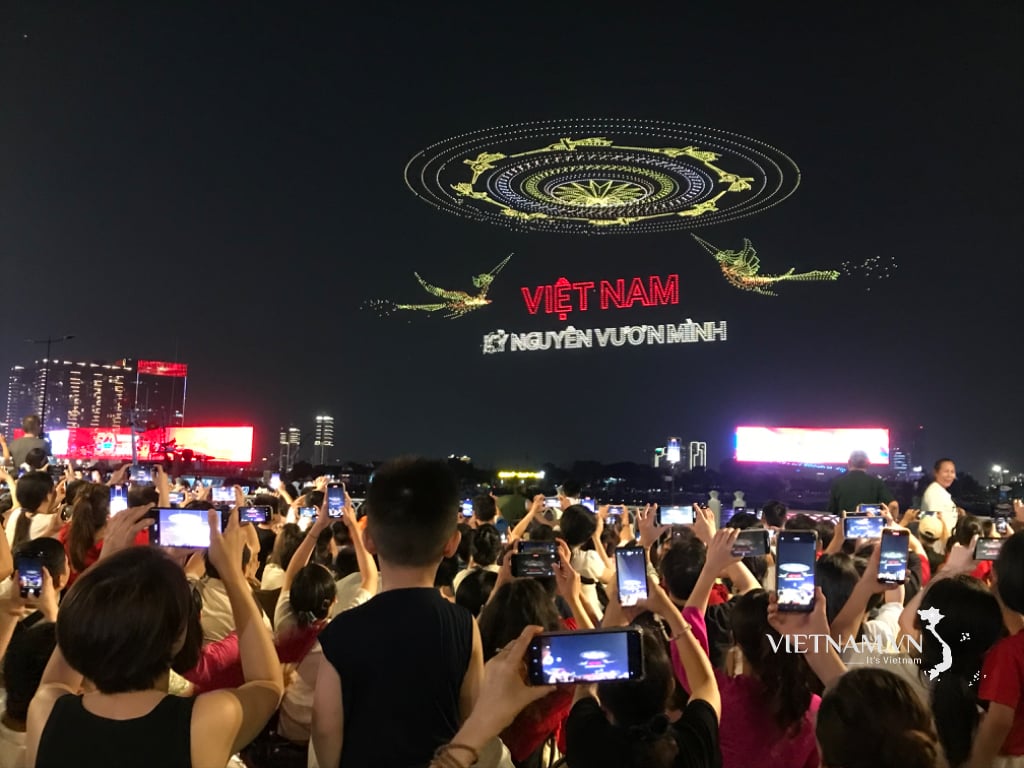
Comment (0)